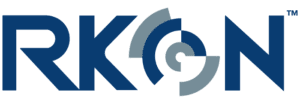Cybersecurity is the practice of protecting computer systems, sensitive information, and networks from digital attacks. Cybersecurity best practices and strategies have been neglected by organizations for far too long, but the introduction of hybrid work models and full-time remote employees have brought the conversation to the forefront. Many organizations struggle with proper security planning, hiring the expertise required for protection, and staying up to date with the latest industry trends. If there is one loophole left open, bad actors can exploit that vulnerability and put the immediate and long-term health of your business at risk.
Below, RKON’s team of experts highlight the top 5 elements of cybersecurity and the impact they have on the safety of your operation. Read about the execution and ideation behind each of these components below:
Accountability
Individuals or a team within IT must be held accountable for cybersecurity implementation and execution. Long gone are the days of simply setting up a firewall and not worrying about a breach. In the current business environment, security requires a well thought out plan with the entire IT team operating under the same best practices and strategies. Establishing a security team, responsible for securing and protecting the organization, is the first crucial step to preventing cyberattacks.
Culture
Although leadership and IT teams have transitioned to a security first approach, employees tend to lag behind the former when it comes to everyday interactions. Over the years, users have adopted bad habits by leaving computers unlocked / unattended, working on insecure networks, using weak passwords, and more. Businesses should invest in proper training to transition to a security first culture, helping employees realize the cost of data breaches to an organization. Once the workforce culture begins to change, IT teams should have fewer cyber threats to worry about.
Guardrails
The internet is chock-full of security traps and schemes that can disrupt any business. IT decision makers need to start employing guardrails, or security defense mechanisms, that prevent cyberattacks on a consistent basis. Defensive practices must be meticulously planned and plentiful in order to combat tactics being leveraged by cybercriminals. Attacks only need to work once, whereas defensive tools must perform every time, putting the IT teams at a disadvantage. Establishing guardrails gives businesses the best opportunity to succeed in countering the myriad of attacks being leveraged by hackers.
Automation
IT teams cannot be bogged down by everyday tasks and loggings that can be performed through automation. By delegating some of the mundane duties of cybersecurity to automated tools and programs, security experts will have more time to commit to preventative measures. An IT team with time to go on the offensive, is likely to produce better results than those overloaded with keyboarding and other time-consuming practices.
Feedback
Attackers have an instant feedback loop and receive gratification when their security breach efforts make the news. Our experts believe security teams should also establish a feedback loop with sensors and key metrics of success. A feedback loop gives your IT professionals access to information in real-time, which allows them to identify potential mistakes and make corrections. Additionally, metrics of success help identify procedures and blueprints that are working in your organization’s favor.
RKON’s Cybersecurity Expertise
As a PCI DSS Compliant organization with an ISO 27001 certification, RKON is more than qualified to help with your business’s cybersecurity strategies. With hundreds of clients and decades of experience, RKON has provided cost-effective vCISO services and security advisory to a wide variety of industries. Partner with the RKON team and receive world-class cybersecurity without the exorbitant price tag. Contact us today if you have any questions about our cybersecurity offerings.

